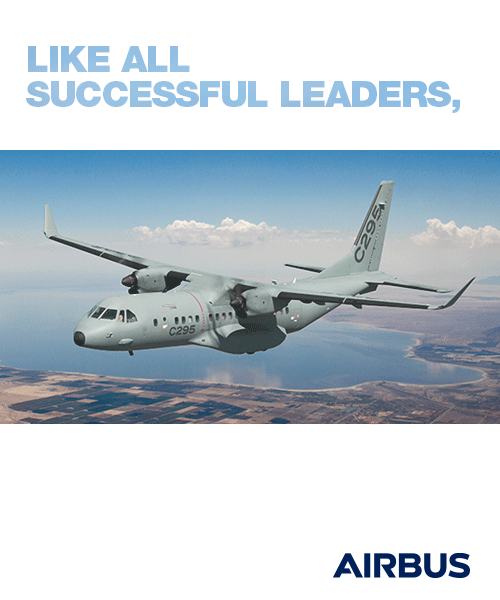By Ajai Shukla
Business Standard, 4th Feb 14
At the emotional high point of President Barack
Obama’s State of the Union speech last Tuesday, he turned to Sergeant First
Class Cory Remsberg, an army ranger seated next to Michelle Obama. The
president invoked Remsberg, blind in one eye and riddled with shrapnel from a
roadside bomb on his tenth combat deployment in Afghanistan, as a reminder of
the price paid to uphold America’s values, Remsberg’s father helped him to his
feet. The audience rose and cheered, many cheeks wet with tears.
Two days earlier, on Republic Day, India’s leaders had
paid homage to our martyrs. Prime Minister Manmohan Singh drove in a heavily
protected convoy down Rajpath to lay a wreath impassively at what serves as a
national war memorial. Later, President Pranab Mukherjee, without a flicker of
emotion, handed a medal and certificate to Karunam Venkatam, the 67-year-old
father of Sub-Inspector K Prasad Babu, an Andhra Pradesh policeman who died last
April fighting Maoists. Mr Venkatam, who struggled not to break down, was
clearly alone in his personal encounter with a patrimonial, uncaring state.
It is no secret that India’s political and
bureaucratic class is oblivious to its armed forces, nor can one expect better
from a governing class whose indifference to its starving and undernourished millions
has been described in these pages as a crime against humanity. Still, the
instinct for self-preservation alone should focus our rulers’ attention on the military’s
dire financial and organisational state, which --- appallingly --- is due at
least partly to the fear that too much nurturing and strengthening might turn
the armed forces into a threat to our own corrupt elites rather than to those
ill-disposed towards India.
Several articles in this newspaper (most recently, “Arms acquisitions languish without funds or
coordination”, February 3) have highlighted the worrying state of military modernisation.
This year the military got just Rs 2,955 crore for new equipment, while Rs
64,680 crore of the modernisation budget went on instalments for weaponry
bought during previous years. Next year, there could be even less for new buys.
More funds would be welcome, but India’s fiscal
position limits military expenditure. Yet it costs nothing to optimise expenditure
by coordinating between the army, navy and air force. With the services
competing, as organisations do, to build their respective empires, roles,
responsibilities and capabilities are wastefully duplicated. Yet politicians
and bureaucrats fear appointing a tri-service chief who could coordinate
budgeting and long-term planning to curb wasteful expenditure. In 2001, a group
of ministers (India’s strongest version of a committee) recommended appointing
a five-star “chief of defence staff” or CDS, who would command all three
services. In 2012 a warier Naresh Chandra Task Force recommended appointing a
“permanent chairman, chiefs of staff committee”, or Permanent Chairman COSC ---
a significantly less powerful, four-star, tri-service chief whose role would be
limited to tri-service planning, long-term budgeting and acquisitions.
Yet, senior bureaucrats say they would never allow a
tri-service chief, since that would concentrate too much power in the hands of
a military commander. An insecure political class, with little knowledge of the
military, has unquestioningly internalised the fear that a powerful,
tri-service chief would threaten democracy. The last army chief, General VK
Singh, bolstered this nonsensical argument by facing off with the government
because of his desire for another year in office.
The politicians and bureaucrats miss the point that VK
Singh could never have credibly threatened democracy. Army power is distributed
amongst six field armies, each headed by a lieutenant general; a successful
coup would require support from all six army commanders. There are five
operational air force commands, each with the firepower to stop a coup. The
navy has another three operational commands. The idea that a rogue tri-service
commander could subvert three service chiefs and fourteen field commanders is
incredible and mischievous.
Indeed, the Naresh Chandra recommendation to appoint a
Permanent COSC --- a fourth four-star general to supplement the existing three
service chiefs --- diffuses, rather than concentrates, military power.
Currently, the senior-most service chief, General Bikram Singh, ex-officio chairs
the COSC. Appointing a permanent chairman would obviously lessen his power,
while strengthening tri-service functioning.
To justify their inaction on appointing a tri-service
chief, the last two governments --- the National Democratic Alliance and the
United Progressive Alliance --- have both cited the need for “political
consultations”. Since 2001, each time the prime minister’s office has enquired
about this issue, the ministry of defence (MoD) has truthfully, and
deceitfully, reported that there was no consensus. A former top bureaucrat once
told me, “Stalling is easy because complete political consensus is impossible.
As long as, say, the Khobragade Group of the Republican Party of India has not
actively committed support, I can truthfully say we have no consensus yet.”
Stalling tri-service reform is a cynical disservice to
every soldier, sailor and airman; to national security; and to those who pay
the opportunity cost for our fiscal inefficiency in defence. It is ironic that one
of the world’s most ineffective and self-serving bureaucracies, and a deeply
corrupted political class, feel threatened by a military that is consistently
cited as India’s most admired and respected institution. Defence Minister AK
Antony should see the writing on the wall: if he fails to appoint a tri-service
chief in his last days in office, his (probably non-Congress) successor probably
will. Mr Antony still has the time to do what is obviously right.

























Very true. A reflection on the sad state of affairs coupled with national apathy.
ReplyDeletePhir bhi mera Bharat Mahaan.....
Very true. A sad reflection of sad state of affairs coupled with national apathy.
ReplyDeletePhir bhi Mera Bharat Mahaan....
Ajai donot expect dummies like Anthony to take such major decisions.
ReplyDeleteOur ruling elite are no different from the Maharajas of the old times... building lavish palaces for themselves while ignoring every one else...The are no different from an old school bully who is nice only to those who hold some sway on them... They react only when the elite are threatened... not caring when the rest are threatened... a state not likely to see any change as they are impervious to everything other their own discomfort...
ReplyDeleteSo, I was not the only one who felt that President Mukherjee was quite insensitive in that moment! He was so formal and dismissive as if " OK, you got your award. Now Go!"
ReplyDeleteIt felt so insulting especially when you could see that the devastated father was crying right there, so was his mom. He didn't even offer a bit of humanity, sympathy, at least!!
If these kind of people become can reach till the post of head of the state, I wonder how deep is the malaise of corruption and insensitiveness in this Grand Old Corrupt Party!!!
Time for it go ASAP.
Our problem is not money. We do not make enough arms at home. We will save a lot of money if we make artillery, high power Diesel engines, ammunition. These are not really high tech.
ReplyDeleteFor me a coup in India is the most stupid thought.
Coup by military is much better than a political criminal syndicate ruling infinitely. India is not even feared by Maldives. corrupt criminal crooked self serving congi politicians are ruining the nation.
ReplyDeletePowerful...what a stark contrast, it is a shame that we have people like these as heads of this Nation.
ReplyDeleteYou nailed it Ajai. I wouldn't entirely blame the politicians and bureaucrats for the sorry state of Indian decision making. We the people, too are equally responsible. I haven't seen a more fragmented yet miraculously united nation on this planet. All the minority groups of this nation aim for selfish, short-sighted benefits based on electoral blackmail, thus ignoring the broader picture. What can one expect to be deserving for such a fractured group of people. And all this hopelessness of caste and religion based politics is enshrined in our Constitution, based on which our Politicians are fleecing us. I say, change the constitution first.
ReplyDeleteWell written article, Col. Shukla.
ReplyDeleteAlas, I am sure that it is but pearls before swine.
Certainly not the best article on this blog so far.
ReplyDelete1. Did not appreciate the subliminal usage of a 'sacred' subject of veterans (photos and stories)as a preface to bring forth a more business and organizational agenda.
If we are to discuss business, then lets discuss business MOD, funds,DAQ, new acquisitions and military technology.
if we are to discuss military appointments lets have a discussion on Joint operations, Unified combatant commands, tri service logistics, utilization of triservice administrative and warfighting capability, organizational changes in the military etc.
If we are to talk Martyrs, lets talk veterans affairs and treatment of ex serviceman personnel etc. But let us not use veterans like a "brand" like many neo republicans do to endorse and advertise the military industrial complex. Veterans and martyrs are beyond money. We may not copy the wrong things from the USA.
2. "....The last army chief, General VK Singh, bolstered this nonsensical argument by facing off with the government because of his desire for another year in office....."
This is an unnecessary, a baseless, an unproven and a biased, "allegation", which is bordering on slander. The use of which does not reflect well on a journalist and blogger of your caliber and standard.
This poor form of biased journalism may be expected from 'daily squalor' channels like TIMES NOW or NDTV or Indian express, who insult a readers intelligence by drawing their own conclusions for us but certainly not from Broadsword.
I hope my criticism is accepted in good spirit and constructively.
Thanks
For the last Paragraph: It need not be IRONIC but rather NATURAL that corrupt and Inefficient be scared of the honest, efficient and hardworking (and being given had treatment).
ReplyDeleteAs there will come a time when (the patience will run over, frustrations will boil over, and the Feeling that till when can we sit over fence just being a spectator to the degradation of the nation) emotions and sense of propriety take over and Bingo a COUP supported by TRI Services as well as all Uniformed Services :)
Keep up the good work Colonel.
ReplyDeleteSir,
ReplyDeleteI believe that the Indian tri-services ,in general, are perhaps the most apolitical fighting forces amongst their peers. However, this has resulted them in being a non-entity in the Indian political landscape. Hence, the Indian political class sees it as a cash cow to be milked, and at times (like crises, Republic day parades) to be showcased.
In contrast armies like the PLA and the Pakistan armed forces maintain a huge political, economic and strategic space in their local/international politics and are loath to give this up. This means that democracy suffers, unless the military shares power like in Myanmar now. Even in the US, the forces form a potent economic beast and (in some constituencies like South Carolina) influence politics too. Several senators indulge in "pork-barrel" politics just to pad their campaigns with funds from defense contractors. In addition, their recent wars have also created constituencies of veterans who clamour for their benefits. We have neither. Yes, I see that in the US there is a genuine undercurrent of patriotism, but its good electoral politics too. So for Obama to do it is just carrying forward a long tradition of US politicians who have lauded the forces in their speeches.
In contrast, which MP in our Parliament owes his seat to his pro-military slant? Answer- None. Unless this is remedied, the political establishment will continue to invest no time/effort to understand or engage the armed forces beyond cliches like "we will do everything for our jawans".
None of the politicians sons/daughter goes to Defence services...They don't loose anybody...Acc. to them its only Defence personnel's duty to get sacrifice.That is why they need NSG , Z+ protection, SPG & State police commando's ...Simple answer..
ReplyDeleteAjai sir,
ReplyDeletePlease change our profile pic.
You look like a drunk person.
Some misplaced comments, innuendoes not withstanding, the artical still brings forth an important element in our polity n governance which definitely needs a mid-course correction.
ReplyDeleteIn Late 1950's n early 1960s there were rumours that the Army might make a move against the poorly fuctioning government of the day. In fact, in several speeches of the days, General Thimayya had indeed made some comments which alarmed the Government. When asked about such murmurs, General Thorat categorically said that Army's brief is not only the safety of the borders. It is indeed also the internal safety of the nation. He claimed that even a study was carried out 'what if' the Army took over - the results (1) The Army would then definitely stand behind Thimayya-Thorat combine; (2) The study was not confident whether the Army would be able to administer the nation more proficiently and deliver better goods than the civilian government did; (3) The study was seriously concerned about affecting the moral and corrupting the officer cadre. So, 'project' was turned down and the nation was saved from that scenario.
This however has had another fall out. The corrupt political bosses had an open field and the ICS/IAS babus, judiciary, police became corrupt instead - ending up making compromises to satisfy their corrupt political bosses.
Politicians and IAS babus have governed the nation in a poor manner and carried out the same 'anti-people' policies that the British had laid down.
Today the internal security is threatened due to the rise of unhappy populace under the banner of Naxals, Political misadventures in Punjab, Kashmir n North East.
On the other hand, external security is threatened by the outflow of capital (black money) from the nation by corrupt politicians and IAS Babus.
No wonder they feel threatened by the idea of any upheaval. In any European nation, had the conditions deteriorated to this extent, there would have been a revolution of the people. Our people are too placid. But, can they be taken for granted forever?
@Jean Luc Picard- Whoa! You aren't expected before the 24th century Capt-or is the Enterprise parked somewhere?
ReplyDelete